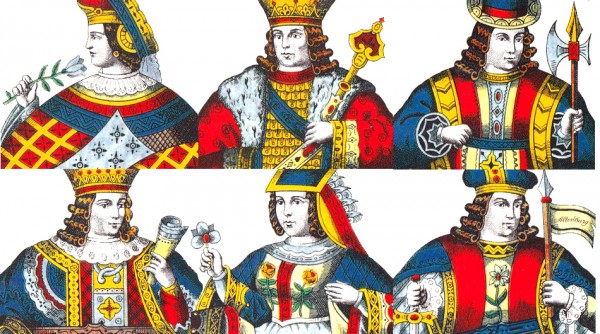The Life, Death and Re-birth of King Robert Ford: A Tragicomedy in 5 Acts
Cast:
- Robert, King of Toronto (Rob Ford)
- Douglas, Earl of Etobicoke (Doug Ford)
- Karen, Duchess of Eglinton (Karen Stintz)
- King David, the Green (David Miller)
- Pope Dalton I (Dalton McGuinty)
- Prince George, the Usurper (George Smitherman)
- Sir Peter of Lakeshore and Michael, Marquis of Wexford, advisors to the King (Peter Milczyn, Michael Thomson)
- Two commoners, both named Adam (Adam Chaleff-Freudenthaler, Adam Vaughan)
- Friar Mihevc of St. Paul (Joe Mihevc)
- Susan Anne, Court Scribe (Sue-Ann Levy)
- Mammo, Court Jester (Giorgio Mammoliti)
- Lord Joseph, Chancellor of the Exchequer (Joe Pennachetti)
A synopsis of the plot, so-called, to this point:
Act I:
We first meet our hero, Robert, journeying on a rented mule across the heaths of Scarborough, inveighing against the profligacy of King David the Green, an allegedly beholden regent concerned only with the welfare of the aristocrats of the capital. King David, in fact, has abdicated his throne, leaving his subjects filled with wrath and burdened by tariff and refuse. Stirring a popular uprising by pledging to forsake gravy, Robert gathers up a diverse army from outside the City walls, widely known as The Bloor Rampart, and clashes with Prince George the Usurper, the self-proclaimed heir to the realm.
After George’s soldiers desert him, Robert enters triumphant through the city gates, claims the crown and banishes green, pink and other symbols of l’ancien regime. In a gesture meant to assert his new-found supremacy, King Robert summons the scheming Pope Dalton I from his suspiciously hued bastion and declares that the roads of the kingdom shall remain free and clear. He then demands an audience with Lord Joseph, Chancellor of the Exchequer, and decrees that the coffers of the City shall be locked tight. Finally, he dispatches his striving, envious brother, Douglas, Earl of Etobicoke, to warn the courtiers of council to make a pledge of fidelity or face the death of a thousand robo-calls.
But Douglas, reveling in his brother’s heady power, secretly invites foreign traders to propose grand plans for new castles, Amusements and royal gardens. When word of the Douglas’ treachery reaches the King’s ears, he privately asks two of his most loyal but heretofore reticent advisors, Sir Peter of Lakeshore and Michael, Marquis of Wexford, for their sage advice. They urge King Robert to renounce Douglas’ schemes. The curtain falls as the courtiers, speaking as one, support Robert’s solemn undertaking to build the kingdom with economy and a sense of renewed purpose.
Act II:
Act II begins as Karen, Duchess of Eglinton, performs a soliloquy stage left, during which she reveals the depths of her misgivings about the reign of King Robert. Selected to be one of his inner sanctum and assigned responsibility for organizing the kingdom’s transportation, Duchess Karen is loyal yet ambitious. She is destined by fate to clash privately with Douglas, the King’s brother, in the execution of her duties. She also suspects that the King’s fantastical edicts for the roads and the carriages meant to travel thereunder are neither economical nor expedient, and concludes her speech by resolving to warn the people of the folly of Robert’s plans.
Her public pronouncements are met with howls of outrage by the King’s most loyal courtiers. Though inclined to mock the King’s girth, Douglas now swears an oath to his brother that he will personally deliver revenge. He privately counsels Susan Anne, the Court scribe, to excite the King’s subjects by denouncing the Duchess and her self-satisfied officials. Yet the courtiers, recalling Douglas’s earlier disloyalty, no longer feel the same ties of duty as they did in Act I; indeed, the fidelity of some of the King’s retinue is in doubt. Sir Peter, among others, comes to Duchess Karen’s defense, tentatively at first but later with resolve.
In what will come to be known as “The War of the Three Meetings,” Duchess Karen and Friar Mihevc marshal a crusader force composed of both Robert’s supplicants and enemies to oppose his imprudent plans to crisscross the middle kingdom with tunnels and other Expensive Works. The armies of Robert and Karen clash on the Fields of Nathan. With the bloody battle drawing to a close, King Robert’s anguished cries of betrayal thrice ring out across the stage.
As The Sun sets, the scribe Susan Anne appears stage right, warning darkly that a coup has occurred. The lights go down.
Act III:
The curtain rises as two commoners named Adam stand on either side of the stage, each surrounded by small groups of whispering peasants, both apparently unaware of the other. One Adam tells of how he has dispatched spies to unearth evidence of King Robert’s infamy, and is now consulting with a Renowned barrister about bringing a writ against the Crown itself. The other Adam explains how, in his mounting desperation, he has taken to wandering the streets, explaining to one and all that King Robert is absent and derelict in his duties to his subjects.
The next scene finds King Robert in a forlorn repose in a magistrate’s docket. He appears drawn, defeated and perplexed as bewigged lawyers haggle over accusations of abuse of power and calumny brought by the commoner Adam and his legions of co-conspirators. During recesses of the court proceedings, Douglas, plots his retribution against those who threaten his brother. Meanwhile, Mammo, the Court Jester, attempts to raise Robert’s spirits with comic performances and other Diversions, but soon abandons his sire, claiming a plot against his own person.
After the proceedings adjourn, King Robert becomes ever more reclusive. He cannot countenance his official duties, preferring instead to don a disguise and observe young soldiers rehearsing their jousts. But at the moment when it seems like the executioner’s noose has been knotted and slung, the magistrates deliver shocking news: the allegations of Adam the commoner are proven baseless; the King, they decree, shall be free to rule! Susan Anne, the Scribe, appears on the balcony overhead, urging Douglas and the King’s retinue to show the two Adams no mercy. The lights dim as King Robert embarks on a rare voyage outside the realm, content in the belief that his foes have been vanquished, once and for all.
Act IV:
As Act IV begins, new court scandals emerge, prompting the ever-loyal Michael, Marquis of Wexford, to send forth to the King’s advisors, urging prudence. Tension builds as reports of divisions taking up arms reach the ears of Robert’s officials.
Our hero appears alone at centre stage, poised at a crossroads on his journey yet seemingly unaware of the choice that beckons. Will King Robert’s unexpected reversal of fortune endure and bear fruit, or does his tragic flaw, in-caution borne of privilege, propel him inevitably towards catastrophe and ruin in Act V?




12 comments
Not bad but a bit to ingenuous. Casting the two Adam’s as commoners doesn’t fit the real drama of the play. They are better cast as agents and spies of the dark foreign Empire of Laboura seeking to destabilize the Kingdom and bring back to power the Princes of Laboura, the exiled allies of King David and the Prince George.
Unlike the above commenter I’m not going to quibble! Very funny and a smart way to tell the train wreck story of Ford.
Beautiful. I hope to see this played at High Park Park this summer.
“The armies of Robert and Karen clash on the Fields of Nathan. With the bloody battle drawing to a close, King Robert’s anguished cries of betrayal thrice ring out across the stage.”
Tremendous effort, scribe John! We must commence petitions for David, chief purveyor of songful merriment (and son of beloved hard tack and vestment merchant Edward the Truthful) to deliver on the promise of this unfinished manuscript.
Two sets of actors in this cast. One is too dumb and the other is too smart. Neither is able to get anything done so the civil war continues. The farce continues until November 2014. Then, the actors will change costumes but will the stage be any different?
A SUV, a SUV, my kingdom for a SUV!
Best casting of all: Mammo the Court Jester. Loved that little touch!
Lorinc regales a great tale of heroes, woes and foes. I imagined Vaughan more as the Squire of Spadina or the Tyrant of Trinity or The Lord of Lefties.
Other characters missing:
Sage Steve of Munro, the soothsayer
Andy Byford, Chief Groom of the Stables
I loved this. Probably the best thing I’ve read all year.
Fringe! Get this into the fringe!
And can I play Mammo, Court Jester?
This is brilliant. I would actually pay to go see this!